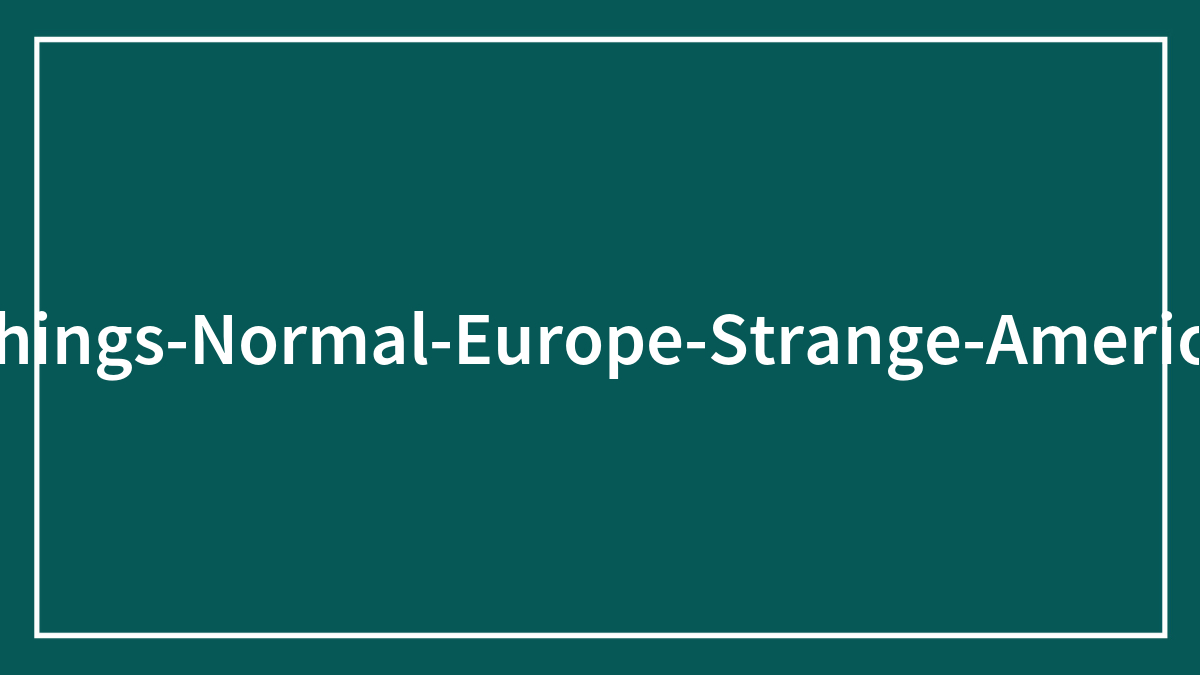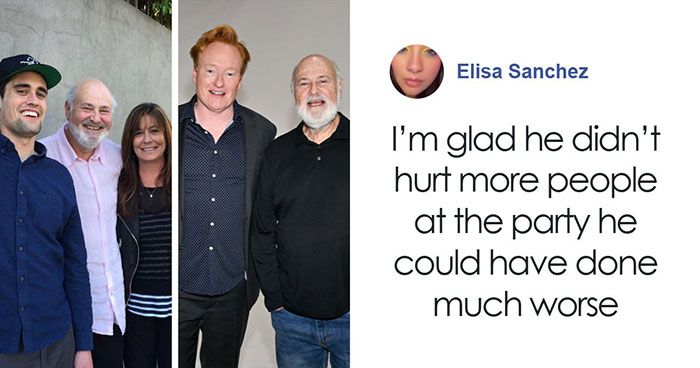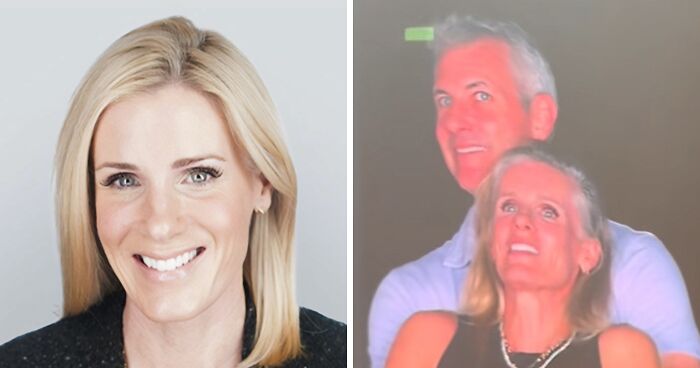What do Europe and the United States have in common? Depending on who you ask, the answer might be, “Not much!” But the majority of inhabitants of both places love Europe. Americans live for their summer trips to Paris or Rome and love dedicating the next six months of their Instagram feed to photos in front of the Eiffel Tower or the Colosseum, and Europeans love staying in Europe because it can be incredibly easy and affordable to travel within the continent. There are about as many countries in Europe as there are states in the US, providing nearly unlimited cultural experiences.
But when Americans hop across the pond to Europe, there are a number of cultural differences that might stand out to them, depending on where they visit. Curious Reddit users have been bringing these quirks to light for years, asking for examples of things that are “normal in Europe but strange in America”, what surprises Americans most about Europe, the biggest differences Americans who move to Europe have observed, and things that are socially acceptable outside the US but would be “horrifying” inside. We’ve gone through these threads to find the most interesting responses and gathered them for you to read down below, so if you’re an American planning a Euro-trip, you can avoid some of the inevitable culture shock. And if you’re not from Europe or the US, you can enjoy hearing a bit about European culture from other people on the outside.
Read on to also find interviews with Dani Heinrich, creator of the travel blog Globetrotter Girls, Sarah Hollis, the woman behind The Pack Mama blog, and Erin and Erin of the blog Surviving Europe to hear about some of the cultural differences they have observed from living in Europe and the US. Then once you’ve finished this list, be sure to check out Bored Panda’s last publication on the same topic right here.
This post may include affiliate links.
 Not me, but my sister. She may say something else if she were asked, but this had always stuck out to me.
She moved to Sweden about 4 years ago. A year prior to the move, she noticed a large lump on her neck, kind of just under her ear area. Concerned, we went to instacare to check it out. Tumor. Benign, so not dangerous yet but we still wondered how much it would cost to remove.
I think the number was around $17,000. After insurance.
So she waited, got surgery after being in Sweden for awhile. The entire thing cost her $30
Not me, but my sister. She may say something else if she were asked, but this had always stuck out to me.
She moved to Sweden about 4 years ago. A year prior to the move, she noticed a large lump on her neck, kind of just under her ear area. Concerned, we went to instacare to check it out. Tumor. Benign, so not dangerous yet but we still wondered how much it would cost to remove.
I think the number was around $17,000. After insurance.
So she waited, got surgery after being in Sweden for awhile. The entire thing cost her $30
It's regrettable that the American Medical system is profiteering off the pain and suffering of the American people. Why isn't medical assistance in inalienable right?
To hear about this topic from a travel expert, we reached out to Dani Heinrich, the woman behind the blog Globetrotter Girls. Though she is originally from Germany, Dani has traveled extensively around the world, so we asked her if she could note some of the biggest differences she has observed between American and European cultures. "The most shocking thing I saw when I traveled around the Southwest of the US: people carrying guns on them – and openly showing them! As someone who has lived in several European countries where I have never ever seen anyone carrying a gun, that was astonishing to me. It also scared me, to be honest – how quickly would these people to use their guns if something or someone upset them?"
"The other thing that shocked me were the portion sizes in restaurants. Oftentimes, the food portions were twice as big as portions in Europe. The same goes for the size of fast food drink containers (a small one in the US equals a large size in Europe) and coffee cups (do we really need half a liter of coffee, or in the case of an iced coffee at Dunkin’: 32 ounces (just under one liter)?!"
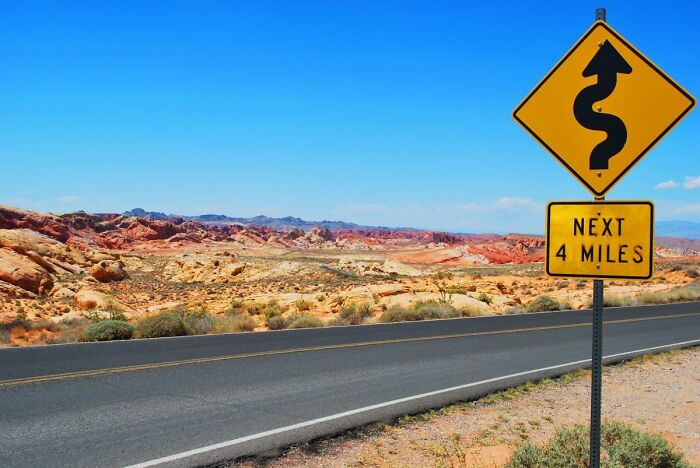 Americans think 100 years is a long time, and Europeans think 100 miles is a long way.
Americans think 100 years is a long time, and Europeans think 100 miles is a long way.
We also asked Dani if there was a favorite place of hers she has visited in the US and Europe. "I love the landscapes of the Southwestern US," she told us. "The canyons and deserts, the saguaro cacti in Arizona and the colorful rock formations in Utah and Arizona. I can’t get enough of the scenery there, but I also love Southern California. As for cities, New York, New Orleans and Savannah are my top three."
"In Europe, I love all the countries that border the Mediterranean Sea – no matter if it’s Turkey, Spain, Italy, Croatia or Malta: I love the Mediterranean coastline, the Mediterranean diet, the wine, the culture and the rich history of the region. Italy is probably my favorite country – the towns are all so picturesque, the food is incredibly delicious, and the history – the Roman Empire in particular – is fascinating."
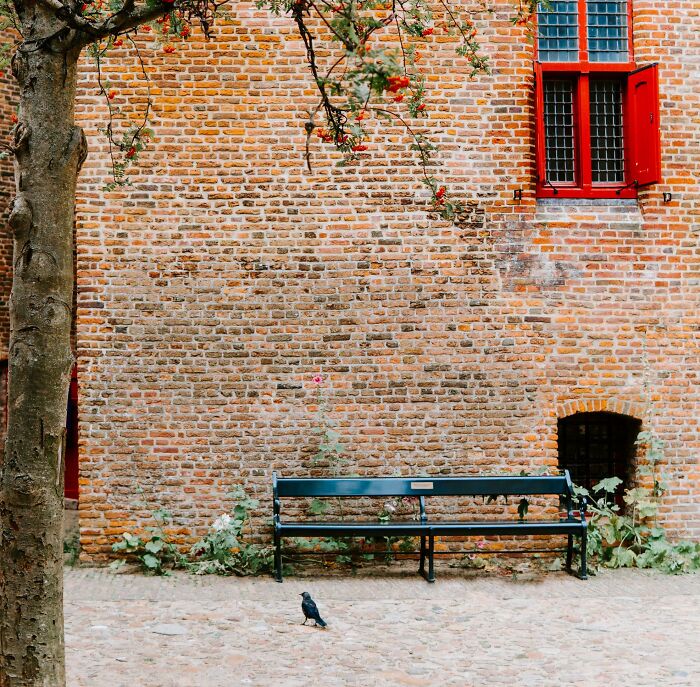 I'm Canadian, but I had a pretty profound moment when I realized the bench I was sitting on was older than my country.
I'm Canadian, but I had a pretty profound moment when I realized the bench I was sitting on was older than my country.
Lastly, we asked Dani why she believes traveling and experiencing other cultures is important. "Traveling the world has really shifted my perspective on a lot of things," she told us. "A lot of things that I took for granted, such as free education and free healthcare, both things I was lucky enough to grow up with – I don’t take them for granted anymore after spending a few years in the US. I also find it very rewarding to learn about different cultures, different ways of doing things, and expanding my horizon by trying new foods and talking to people who have a completely different background." If you're interested in hearing more about Dani's travels, be sure to check out her blog right here.
 Still trying to get used to my five weeks of vacation. The three weeks this summer with my family was incredible. Still having two weeks to spend with them at Christmas, is beyond belief. All vacation is paid vacation. And it is standard everywhere. Oh and the two hour lunch, and 32 hour work week. I think this is is literally going to add up to years more with my family. Since I think time with my family is the most important thing, this just makes the quality of life here so much higher. I don't know if I will ever get used to it. But I love it!
Still trying to get used to my five weeks of vacation. The three weeks this summer with my family was incredible. Still having two weeks to spend with them at Christmas, is beyond belief. All vacation is paid vacation. And it is standard everywhere. Oh and the two hour lunch, and 32 hour work week. I think this is is literally going to add up to years more with my family. Since I think time with my family is the most important thing, this just makes the quality of life here so much higher. I don't know if I will ever get used to it. But I love it!
We also reached out to Sarah Hollis, creator of The Pack Mama, to hear her perspective on being an American living in Europe. Sarah, along with her husband, two dogs and one cat, moved from Chicago to Austria a year and a half ago. She told us that some of the biggest differences they have observed are the concepts of work-life balance, public transportation, and animal acceptance. “The mentality here is to work to live rather than live to work,” Sarah says. “To help this work-life balance become a reality, Austrian companies provide workers with 5 weeks of vacation plus many annual holidays.”
She also noted the mandatory 16 weeks of paid maternity leave for up to 2 years in Austria and said that most businesses are closed on Sundays as well. “Americans who understand the craving for Chick-fil-A on Sunday will understand this struggle, but these closures offer the store employees a good work-life balance too. In America, convenience and accessibility are key, so the Sunday closures were a big shock at first.”
As far as public transit, Sarah explained that there are endless options in Europe. “Whether you are cruising down sections of the speed limitless autobahn in Germany, biking along the canals of Amsterdam, or taking a high-speed train from Austria to Switzerland, European public transport exceeds the American form of travel. European airport security lines are much more efficient to get through, and if you are in GreatBritain, Malta, or Ireland, you will find yourself driving on the opposite side of the road, which can be a shock and an adventure the first time you do it.”
She also has noticed that European cities tend to be more dog friendly than American cities. “For pet-parents of dogs who would typically be listed on a ‘banned breed’ list, you and your dog are welcome in Austria because it is the only country that does not prohibit the entry of any breed of dog. Dogs are also free to join you in public places like shops and restaurants, and even on public transport like the aforementioned trains, ferries, buses, and cable cars.”
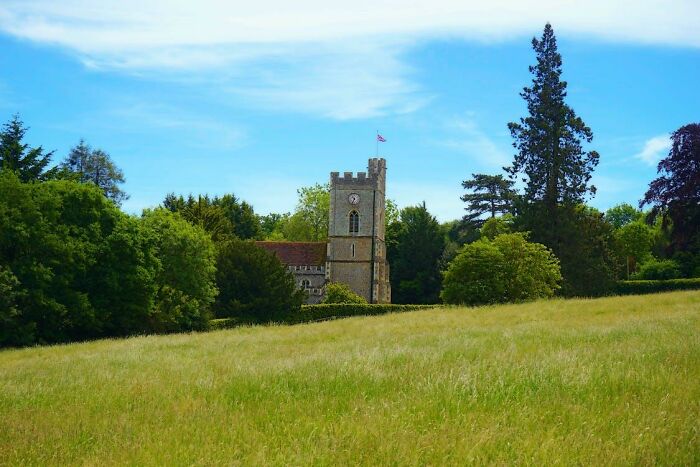 How awesomely rural a lot of England is. I stayed in Cambridge and was impressed by how well preserved the green space was.
Also, when you buy produce, how it's usually labeled with the farm it came from. Awesome.
How awesomely rural a lot of England is. I stayed in Cambridge and was impressed by how well preserved the green space was.
Also, when you buy produce, how it's usually labeled with the farm it came from. Awesome.
We wanted to hear some of Sarah’s favorite destinations in Europe, and she recommended checking out the beautiful hiking trails of the Salzkammergut in Upper Austria, the Aescher cliff-side restaurant in Appenzell, Switzerland, the 16th century Manor, Manor De Juganville, in Normandy, France, and the sunset on the Dingle Peninsula in Kerry, Ireland.
When asked why traveling and experiencing other cultures is important to Sarah, she told us that, “It changes you. The things you see make you think differently. The environment you are in makes you act differently. The people you are surrounded by make you speak differently. And because of our travels and experiences, we have been changed for the good.”
“There are 195 countries in the world, and so far, we have traveled to 22 of them. Every time we travel to a new place, we realize how many more places we still need to see, and how much more we still must learn about the world and the people who live here.”
If you’d like to hear more about Sarah’s travels, be sure to check out The Pack Mama right here.
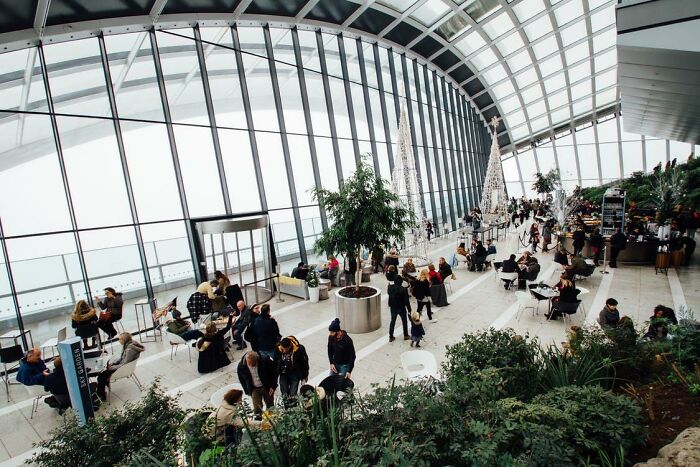 Got off the plane in Frankfurt and there were people riding bicycles and smoking cigarettes inside the airport. There were also people riding bicycles and smoking cigarettes at the same time inside the airport.
I also got the notion that people in Europe in general were far more free than in the United States. It opened my eyes to the fact that the USA isn't really such a "sweet land of liberty" and freedom at all.
Got off the plane in Frankfurt and there were people riding bicycles and smoking cigarettes inside the airport. There were also people riding bicycles and smoking cigarettes at the same time inside the airport.
I also got the notion that people in Europe in general were far more free than in the United States. It opened my eyes to the fact that the USA isn't really such a "sweet land of liberty" and freedom at all.
When did you go to Germany?? I don't think smoking inside is permitted any more.
We also reached out to Erin and Erin of the blog Surviving Europe to hear about their experiences as American expats. What surprised them most about Europe was the “effortless and naturally relaxed lifestyle”. “It’s nothing they have to work towards or focus on intentionally, it’s automatic in their every day and something their cultures allow for without effort,” they explained. “We are always on the move here in the US, and our culture is more naturally go, go, go. It’s harder to pause and take a second without feeling guilty. In Europe, it’s generally not, and that is something we admired most about living in Austria.”
“What shocked us, living in a city outside of Salzburg, was the fact that on Sundays there was absolutely nothing open, aside from the gas station. And it was a celebrated thing. Because Sunday is the day to relax and for you to spend time with your family. Period. Everyone respects the fact that people who work at grocery stores or shops need their Sundays too. Everyone deserves a day to relax without question. It was so considerate and authentic because that’s what they know and value inherently.”
It is much safer. There are (almost) no panhandlers. People are much more relaxed and secure about their lives. Everyone is at least bilingual. People are generally better educated and knowledgeable about the world. Health care is a breeze. Public transportation makes life better (I wouldn't even think of buying a car). People are somewhat more open to different points of view and perspectives. Junk food is consumed, but just as something extra once in a while - it's generally not seen as 'real' food or a proper meal. There's a general sense of being in a society, 'in it together', respect for human dignity. Protecting the environment is in everyone's interest. Canals. Lots of canals.
Depends on where you are. Some cities are FULL of panhandlers and pickpockets
We also asked if they had a favorite place they had visited in Europe. “It’s so hard to choose because we loved SO many different destinations for SO many reasons,” they told us. “One of our favorite places we ever visited in Europe was Trento, Italy. What a hidden paradise! Since it’s located in Northern Italy, so close to Austria, it’s almost like the two countries combined in the heart of the Dolomites. The Buonconsiglio Castle, that towers over the city, is like something out of a fairytale. The food is Austrian and Italian influenced, which are 2 of our favorite cuisines. Everyone we met was kind and so passionate about where they lived. It’s traditional, but also forward thinking and in the present, since Trento is a college town (University of Trento). There was even a Reggae festival taking place when we were there! That is not something you see in most smaller European cities. We loved everything about it!”
 The three things that struck me when I visited France for the first time:
- So many people smoking.
- You can actually get near old things. I live in California, where 150 years is archaic. Walking through a 900 year old building, and being able to touch the walls was mindblowing to me.
- Just how insanely easy it is to spot other Americans.
The three things that struck me when I visited France for the first time:
- So many people smoking.
- You can actually get near old things. I live in California, where 150 years is archaic. Walking through a 900 year old building, and being able to touch the walls was mindblowing to me.
- Just how insanely easy it is to spot other Americans.
Lastly, we wanted to hear why they think traveling and experiencing new cultures is important. “[It] is the most important thing you can do to develop and grow. It opens your eyes to a way of life that is so different from the one you’re living. It expands your mind and provides you with a rare understanding that a world does in fact exist outside of yours,” they told Bored Panda. “And it can be a world so completely opposite of what you’re used to. We are so focused on our day to day routines that most forget to stop and look around. Travel kind of forces that, but in the best way. For us, it's also a form of meditation, allowing you to step away and open yourself up to a world of endless possibilities. You can take what you've absorbed from your experience and apply it to your life back home. Travel changes you in ways nothing else can, and there is simply nothing as rewarding and impactful.”
If you’d like to hear more about Erin and Erin’s travels, be sure to check out Surviving Europe right here.
 The other day I asked a pharmacist how much my prescription would be and she laaaaaaaughed and laughed, as in, 'Oh you silly Americans, having to pay for your medicine...'
Also, the wind in Scotland is simply hilarious. I couldn't stand still without being pushed backwards, let alone walk in a straight line.
The other day I asked a pharmacist how much my prescription would be and she laaaaaaaughed and laughed, as in, 'Oh you silly Americans, having to pay for your medicine...'
Also, the wind in Scotland is simply hilarious. I couldn't stand still without being pushed backwards, let alone walk in a straight line.
Medicine in the England is not completely free, you have to pay a prescription charge of £9.35 per item, if you have a lot of medication regularly it's cheaper to buy a prepayment certificate which is £108 a year. Some medical conditions allow you to apply for an exemption certificate and you can also apply if you are on a low income.
Living in the NL for a year now, moved from Texas. A lot of comments already mentioned the main differences, but one other is taxes. The taxes are wayyy higher here which was difficult to reconcile at first. However, once you see how far your tax money goes here versus in the US, I actually would prefer to pay more in taxes to have a nicer place to live for everyone. A few immediate differences include almost no hobos, no really bad areas of town, public areas and parks are really nicely kept, etc.
Before we get into cultural differences, there are plenty of physical differences between the US and Europe that can be startling to residents of either place when they take a trip to the other. First of all, the US is quite massive. The entire country combined has a landmass of about 3.8 million square miles (or 9.8 million square kilometers), while the entire continent of Europe has a landmass of only 3.9 million square miles (or 10.2 million square kilometers). And when you compare the landmass of the EU to the US, the EU is only about half the size of the United States. This makes traveling in Europe seem extremely easy to Americans, as flights always feel short and driving is a breeze when many of us are used to taking multiple-day-long road trips. On the other hand, Europeans are sometimes shocked by the vastness of the US when they attempt to visit multiple states within one trip.
 Not being bankrupted by a broken leg.
Not being bankrupted by a broken leg.
I recently broke my leg (still in plaster now). Arrived at A&E (ER, in the US) and was triaged immediately and taken to the assessment department. Was seen by a doctor within 1/2 hour and x-rayed. Leg was the plastered and I was x-rayed again. Specialist orthopaedic doctor came to see me, told me the best bet for surgery was to wait a week for the swelling to go down and then they'd put a plate in my leg. I was then discharged with crutches. Hospital called to arrange the surgery the next day. Couldn't fault it and there was no charge.
Many Americans are also surprised by how efficient public transit is in most European countries. Coming from a nation that requires the majority of its citizens to rely on cars as their primary modes of transportation, Americans often find it refreshing how great buses and trains are in Europe. Especially within capital cities, biking, walking and scootering are viable options to get around as well. Very few cities in the US are built to accommodate cyclists or pedestrians, and even fewer have excellent public transportation. Contrary to most European cities where residents can get around without ever needing their own vehicles, unless Americans live in one of about 15 cities in the US, they are probably reliant on their cars.
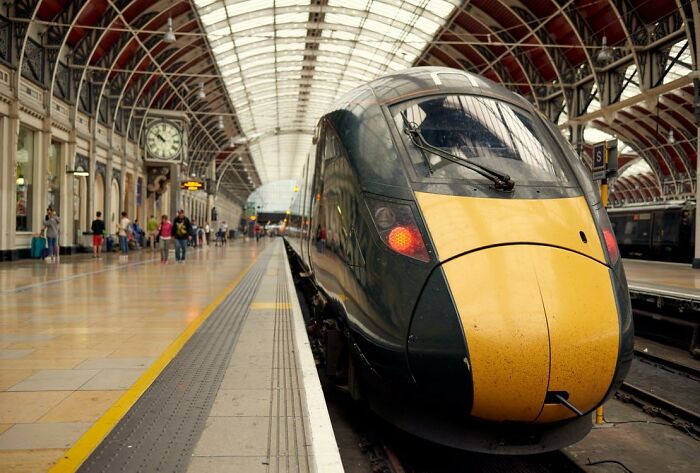 How clean and efficient the rail system is. AmTrak is a f*cking joke.
How clean and efficient the rail system is. AmTrak is a f*cking joke.
 Affordable higher education.
Affordable higher education.
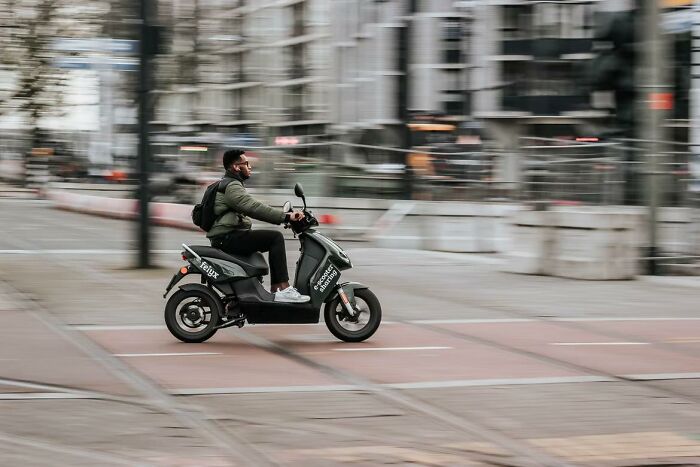 The Italian's way of driving. Never in anytime of my life was I more paranoid of being hit by a moped.
The Italian's way of driving. Never in anytime of my life was I more paranoid of being hit by a moped.
Aside from many Europeans not using cars because they don’t need to, plenty of people in Europe opt to go without a car for environmental or health reasons. Taking advantage of walkable or bikeable cities is a great way for residents in European countries to stay fit and active, which is probably one of the reasons why Europeans are generally healthier than Americans, especially adults between the ages of 55-64. Europeans are also serious about protecting the environment, with recycling mandates becoming stricter and stricter over time. The US should definitely take note of the ways European nations have prioritized taking care of the planet and making transportation accessible; it’s about time they caught up.
 When I was sixteen I went to Poland (Krakow) with my best friend and our moms. I had never been to Europe before and we were coming from a densely populated small state, where pretty much no ethnicity seems to be a minority. Poland was the whitest f*cking place I have ever been. I only met two black guys and an Asian chick while I was there, and all three were British. I guess it makes sense that I'm used to seeing all kinds of people, coming from the US, but it was shocking to teenage me.
Another thing was that all of the people were beautiful. Well-dressed, perfect hair, and ridiculously good looking. All we wanted to do was talk to guys all day.
When I was sixteen I went to Poland (Krakow) with my best friend and our moms. I had never been to Europe before and we were coming from a densely populated small state, where pretty much no ethnicity seems to be a minority. Poland was the whitest f*cking place I have ever been. I only met two black guys and an Asian chick while I was there, and all three were British. I guess it makes sense that I'm used to seeing all kinds of people, coming from the US, but it was shocking to teenage me.
Another thing was that all of the people were beautiful. Well-dressed, perfect hair, and ridiculously good looking. All we wanted to do was talk to guys all day.
If you meet a black person in my country, many people usually just stare. Not because they have a problem with them but because it is such a rare sight. Central Europe 🤷 We do have a lot of Asians though
 The way the use of foreign languages is seen. In the states, there was always a certain amount of indifference, or even stigma for being a foreign-language enthusiast.
But around here, the use of foreign languages on a daily basis is essentially a social norm.
The way the use of foreign languages is seen. In the states, there was always a certain amount of indifference, or even stigma for being a foreign-language enthusiast.
But around here, the use of foreign languages on a daily basis is essentially a social norm.
I never understood the low apprecion for foreign languages. Here in Germany, Children start with English at 10 or 11 at school the latest (sometimes it is even taught in kindergarten), and highschool education mandates another foreign language (usually it's French). Also, about 25% of the population have some kind of immigration background, so turkish, arabic and polish are also widespread. In other countries there are even mutliple offical languages, like Switzerland (Italian, German, French), Belgium (Dutch, French, German in parts of the country), Luxembourg (French, Luxembourgish (yes, that's a real language) and German - although English and Portuguese are very common there, too). Also some areas have widespread regional languages that are too unique to be considered a dialect (like Catalan in parts of Spain, Gaelic in Scotland, Rhaeto-Romanic in Switzerland) - all that on a relatively small geographic area. So you simply won't get far in Europe speaking only one language.
 Went to London and Paris recently. I tipped a bartender in London and he looked shocked. Also everything I bought was the exact price it said. I'm so used to adding up 6.5 percent to everything.
Went to London and Paris recently. I tipped a bartender in London and he looked shocked. Also everything I bought was the exact price it said. I'm so used to adding up 6.5 percent to everything.
When it comes to cultural differences, Americans can encounter countless culture shocks in various European countries. From the first time an American is confronted with a public restroom that costs money (I still think that should be illegal…) to paying for tap water (Again, how is this legal?) to spending their first summer in an apartment, excuse me a flat, without air conditioning, Europe can feel like a completely different world for first time visitors. Cold drinks are served with much less ice than back home, people enjoy swimming in freezing cold water, and summer days have seemingly endless daylight due to being further north in the hemisphere.
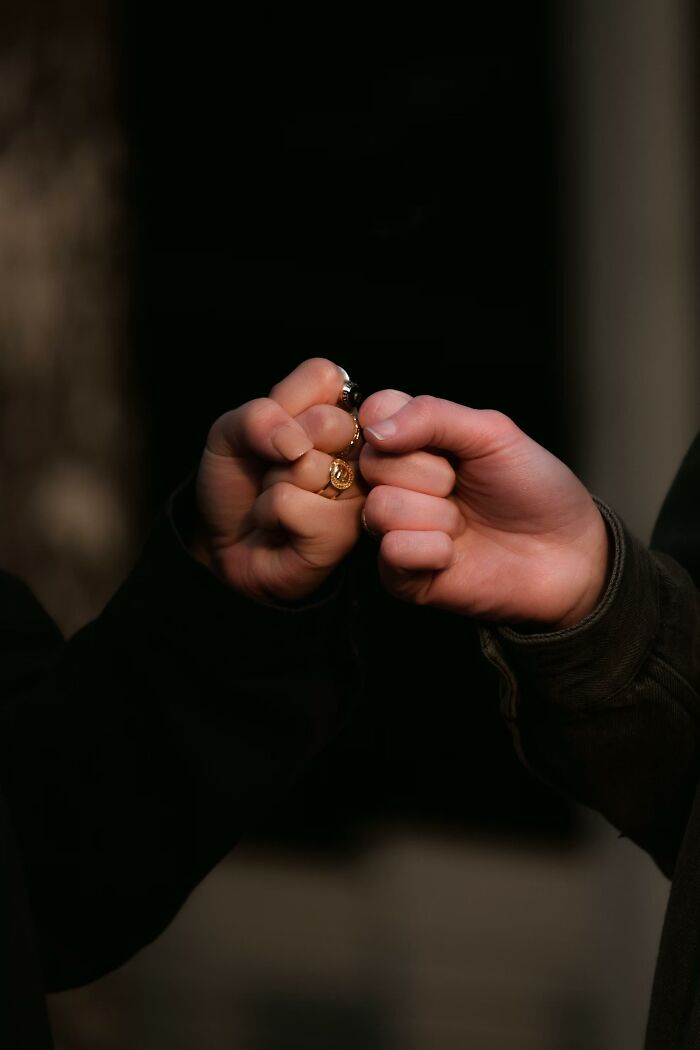 I never realized how consistently, unconsciously unsafe I felt in the USA until I moved over here. People don't really f*ck with you or your sh*t where I live now.
I never realized how consistently, unconsciously unsafe I felt in the USA until I moved over here. People don't really f*ck with you or your sh*t where I live now.
I really, really want to move to Europe now. I'm pretty sure I've got trust issues from being in the US all my life...
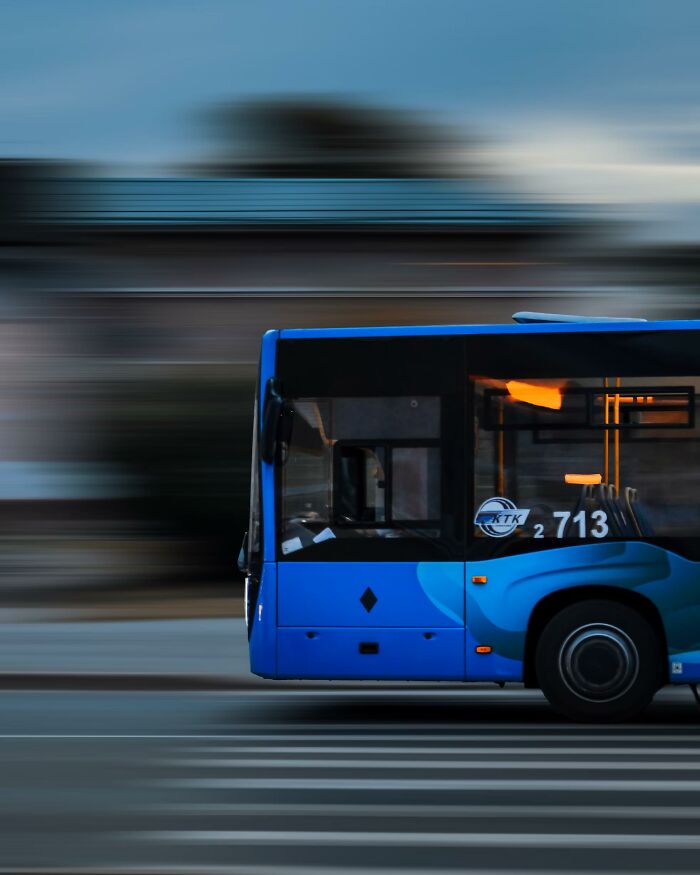 Public transportation across cities, in rural areas and across countries.
Public transportation across cities, in rural areas and across countries.
When visiting LA form Northern Europe, my dad and I used a bus, 'cos it's so normal for us. Everyone look at us super weird, stared even. I noticed we're the only white people on the bus. It was less weird in San Francisco, but the schedule could be better. The bus drivers were super nice everywhere though.
Many of the differences that Americans encounter are pleasant surprises, though. For example, going places where tax is already factored into the price of an item on the shelf can be refreshing. In the US, tax rates vary state to state, so you are never 100% what something costs until you check out. Tipping culture is also very different in Europe. When eating at a restaurant in most European countries, tipping is not required, but if you would like to leave something, 10% should be fine. In the US, leaving a tip of 10% at a restaurant would be an insult to your server, but because they receive actual wages in most other countries, they don’t have to rely on tips.
 People in Scotland (Specifically Glasgow) are the nicest I've ever met, seriously. People would have friendly conversations with you at bus stops, and one person even lent me £2 spare cash at a gas station for petrol. It seems to be 90% of people there are like that. Very unusual.
People in Scotland (Specifically Glasgow) are the nicest I've ever met, seriously. People would have friendly conversations with you at bus stops, and one person even lent me £2 spare cash at a gas station for petrol. It seems to be 90% of people there are like that. Very unusual.
No, it's not unusual. Australians are very friendly, too. And Canadians. And Kiwis. I'm sure others could add to the list. Maybe it's America that isn't?
 I lived in Hengelo for a year for work purposes. Bike culture in the Netherlands is absolutely wonderful and I miss it.
I lived in Hengelo for a year for work purposes. Bike culture in the Netherlands is absolutely wonderful and I miss it.
They are some experiments with bike highways between cities (ca 20-30 km) with special tarmac, so people could commute by (e)bike, thereby saving co2 emission by cars
The lack of branding on stores, and it made me completely jealous. You mean, drugstores can exist without ten-foot high signs? Restaurants can look like normal buildings? Revolutionary.
This is a tricky one. There doesn't seem to be much, if any, zoning where I live in Belgium and sometimes it's hard to find the shop because it looks like someone's house.
And how could I go through this entire article without mentioning some of the elephants in the room: healthcare and guns. On average, Americans spend about $10k a year on healthcare costs, while the average citizen in the EU spends about 3,100€ on healthcare annually. Aside from not fearing they will be plunged into debt every time they go to the hospital, Europeans also have to worry much less about gun violence. Due to the lax gun control policies in the US, “age-adjusted firearm homicide rates in the US are 22 times greater than in the European Union”, as reported by the Institute for Health Metrics and Evaluation. While no one in the world should have to worry about exorbitant medical bills or gun violence where they live, Americans certainly encounter both of those things far less in Europe than back home.
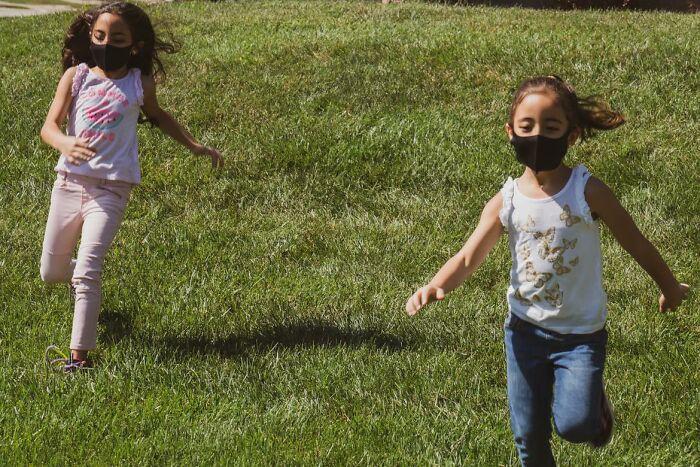 My first trip into Amberg, Germany, a bus pulled up to the station and a bunch of small children got off and wandered into the fußgängerzone completely unaccompanied by adults. That's how safe it was.
That and the more liberal sexuality. According to many of the friends I had, I was the only American they had ever met to even attempt learning German. I had never been told that my accent was so sexy before. That was all it took to go home with some of them.
Definitely worth going back.
My first trip into Amberg, Germany, a bus pulled up to the station and a bunch of small children got off and wandered into the fußgängerzone completely unaccompanied by adults. That's how safe it was.
That and the more liberal sexuality. According to many of the friends I had, I was the only American they had ever met to even attempt learning German. I had never been told that my accent was so sexy before. That was all it took to go home with some of them.
Definitely worth going back.
I moved to the Netherlands in 2005 and I think the biggest difference between here and the USA is work. There's a minimum of 21 days paid vacation, you don't have only 3 sick days for the entire year, and if you're asked to work overtime you can say no without risk of being fired on the spot (DO NOT miss at will employment). It did take about 3 years to be able to call in sick without major guilt and about the same amount of time to learn to take vacation days vs. hoarding them.
The cleanliness in Germany shocked me. While driving through the countryside, there was not a single piece of garbage on the road anywhere. Just about everywhere in the USA has litter almost everywhere.
Traveling and experiencing other cultures is often an eye-opening experience. Especially for Americans who can easily go their entire lives without ever leaving the country, cultural differences when visiting Europe can be vast, but it is important to view any other nation with an open mind and a respectful attitude. Hopefully this list has inspired you to go out and do some of your own traveling this summer, and maybe even learned a thing or two about a nation you haven't yet visited! Be sure to upvote all of your favorite responses, and then let us know in the comments if you have ever traveled from the US to Europe, or vice versa, what did you find most surprising?
The lack of homeless people. I live in Germany and I think I've seen maybe 5 homeless people here, most of which were probably refugees. I went back to the US last year and was astonished at all of the homeless people everywhere. They were literally on every corner. It broke my heart. I had completely forgotten about that part of life there.
There are 15 thousand homeless *children* in New York alone. https://www.coalitionforthehomeless.org/basic-facts-about-homelessness-new-york-city-data-and-charts/
I was on a two-day shore leave in Bergen, Norway. I don't know if I just happened to be in the right places at the right time, but everything was clean, and everyone was beautiful and chic. Women, men, everyone. That place seemed perfect.
That's because it is a socially progressive country where they make sure people and things are taken care of through high taxes.
I traveled around most of Europe with my parents when I was 15. By far, the most surprising part about Europe was how relaxed you guys were with sexuality. I'm from the south and being open about your sexually is generally frowned upon. But in Europe? Boobs. Boobs everywhere. When we first touched down in Belgium there was a museum which had an exhibit called 'The Art of Orgasm'. I found an ad booklet in Switzerland for watches that was just 20 pages of attractive women making out. One night in a hotel I discovered that most of the channels on the TV were soft core porn. I shared a bedroom with my parents for most of the trip. It was a challenging time for me.
It's not about sexuality. It's not making human nudity a sexualised aspect. There's something wrong with you if naked strangers body causes you to react l, also why you looking? Nudity is not frowned upon, and sex is considered part of healthy and fulfilling life of its your choice, you can take many courses and visit museums specifically to open you to what is available, what people do, how bodies work and how to reach that pleasure in a safe manner. I never knew nudity wasn't normal, I grew up with naked bodies, unisex changing rooms, saunas, if you reacted you were the issue and usually someone would have let you know or removed due to perversion you show
 Moved to Germany. There are a lot of little differences, but I think the biggest difference is the work-life balance. Not only do I get 31 days (essentially 6 weeks) of vacation, because I have a disability, I get 5 extra days of vacation because the idea is that I have to work harder to do the same amount of work so I should get more time off.
A lot of the differences I've noticed here have to do with my disability, actually. (Visually impaired)
And then of course, there's the whole "stores not being open super late or on Sundays or on holidays" thing.
I also miss Cheetos, weirdly enough.
Moved to Germany. There are a lot of little differences, but I think the biggest difference is the work-life balance. Not only do I get 31 days (essentially 6 weeks) of vacation, because I have a disability, I get 5 extra days of vacation because the idea is that I have to work harder to do the same amount of work so I should get more time off.
A lot of the differences I've noticed here have to do with my disability, actually. (Visually impaired)
And then of course, there's the whole "stores not being open super late or on Sundays or on holidays" thing.
I also miss Cheetos, weirdly enough.
The soda over there is 10 times better. They don't use high fructose corn syrup like we do in the states, and holy sh*t is it noticeable.
People tend to dress nicer - you'll see hardly anyone walking around in sweats. I feel like this has something to do with the fact that you see more people walking in general, and therefore try to look a bit more presentable, whereas in the US people usually just drive everywhere.
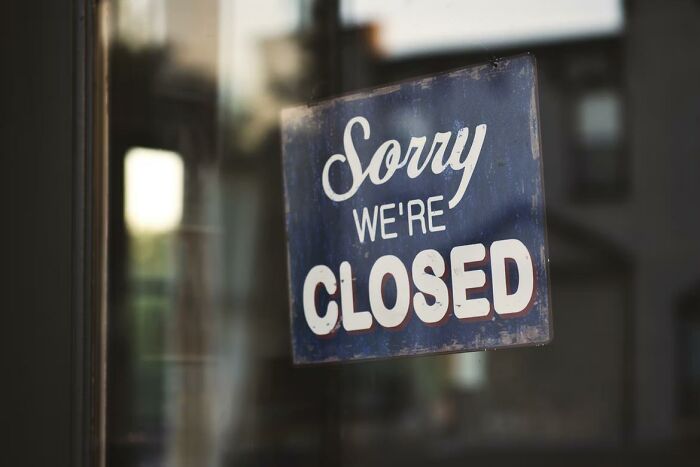 A friend who moved to Germany was surprised how everything closed at night. After 5 PM or so there was nothing to be purchased in her town.
A friend who moved to Germany was surprised how everything closed at night. After 5 PM or so there was nothing to be purchased in her town.
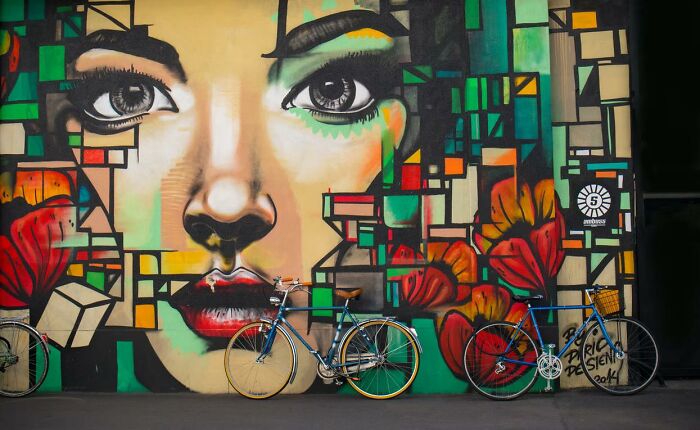 Went to France. The most surprising thing to me was the sheer amount of graffiti everywhere. I live in a fairly large city but I've never seen graffiti on that level.
Went to France. The most surprising thing to me was the sheer amount of graffiti everywhere. I live in a fairly large city but I've never seen graffiti on that level.
There's graffiti and there's graffiti. I think what's in the pic is street art. Whereas mindless spray painting is just vandalism.
That the nightlife doesn't start until after 2300 hours (11 pm) or later.
 I was taken aback by how small the village streets are. Also, how quaint the small villages are, they're like out of a fairy tale.
I was taken aback by how small the village streets are. Also, how quaint the small villages are, they're like out of a fairy tale.
Pleasant suprise the bathrooms aren't dinky stalls they are usually little rooms.
And there are no irritating gaps in the doors. Every time I go to America, I end up awkwardly trying to hold my coat over the gaps because it makes me uncomfortable.
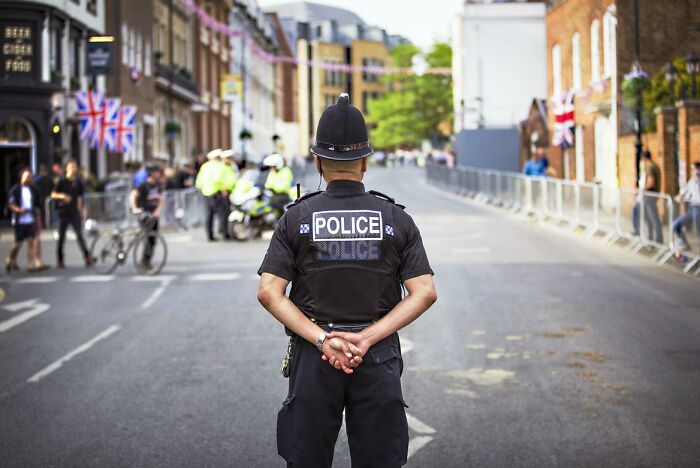 Less cops. US is pretty police statey by nordic standards
Less cops. US is pretty police statey by nordic standards
True, and the attitude is quite different. A quick story. Driving through Maine, our rental car had an engine issue. While waiting the towing service a patrol stopped by. They approached us with an hand on the holster and menacing attitude. We explained the situation, they checked our papers twice, and they decided to have a full vehicle and luggage inspection while waiting for the tow truck, then left us to our devices before the truck showed up. Same thing happened a few years later in Spain, two punctured tires. A Policía Nacional patrol stopped by: they asked if we needed help and offered to call a tow truck for us. They stayed with us, chatting a bit, but were called for an emergency and had to leave. They insisted to give us a few bottles of water because it was a very hot day and left us a phone number to call if the truck would be late or we needed further help.
A few years ago I spent a semester abroad in southern spain. I had been to Europe a few times, but my youngest brother had never been. My dad decided that he and my brother would come visit me, and apparently in the cab between the airport and my apartment, my 16-year-old brother turns to my dad and says "I don't get it, I just saw two the the most beautiful people I have ever seen....and they were picking up trash."
Americans use too many pleasantries. In Italy, I had restaurant staff laugh at me and my American friends because we'd thank them for everything. Don't get me wrong, service staff anywhere will still be pleasant, but they're not going to ask how you are, or expect tons of thank yous for just doing their job.
As a Brit, I can't not thank waiters, etc.in other countries, even when I see that the locals don't. I think it is correct to thank someone who has brought your drink over, no?
In Zurich, I was surprised at how lax everyone is about drinking. I go into one bar, everyone's got a pint of Guinness, and it was like walking into a coffee shop. It's strange to not be carded and everyone being civil. And in another bar, it was strange to see two teenage girls get a pint of Carlsberg and gab about he said/she said gossip (in German, which was kinda strange, but amusing). They drank their beers casually and only drank one each.
I moved to the UK when I was 14 and one of the things that unexpectedly took me back was how all the houses were made of brick. Every. Single. One. I previously lived in the Mid-West and most houses were wood with aluminium siding.
I'm an American, from New York who has moved to Paris. I've also lived in Austin Texas. The biggest difference between New York and Paris I've found is that despite Paris being a big city (for Europe) it is relatively slow paced compared to New York. Things close. Stuff can wait until later. People take leisurely lunches and dinners. I actually had a friend here complain about the check being brought too quickly. They were offended the restaurant didn't let us sit there leisurely drinking our wine (we had already been there for 2 hours). Biggest difference between Paris and Austin is that people don't casually smile at each other as an acknowledgment. Only Americans do that here it seems.
Speaking many languages! Apart from immigrants, I don’t know any Americans who speak a language other than English. In Europe, students are taught 3-4 languages in school and often have a parent that speaks another language too! -Style (the fact that wearing yoga or sweatpants is frowned upon) -Traveling : eu citizens get 5-6 weeks paid leave, USA gets 2... we are lucky to be able to travel more! -Public transport -Healthcare
Went after sophomore year in high school. While playing soccer (football) with my homestay family and experiencing my first ever drunken holy sh*t moment, I realized (leaning quite defeatedly against the goal post, I might add) that if I didn't know I was in France, I would have assumed I was in America. In my head it was always just a "place," but somehow not really real. That they were people with lives and sports and homework and petty dramas that plagued me back in America. They were people, not the French. It's hard to explain, and I'm sure I sound like a f*cking idiot right now, but I'd only ever prepared myself for the differences, and never considered that basically everything other than language was indistinguishable from it's American alternative.
This one was sort of obvious, but how thin and slender everyone looked. At least in Italy where I was. Everyone just looked so much more attractive without any fatties.
hmmm, the vibrant colors in spring in england. Especially the greens and yellows (rapeseed fields and grass). That is all I got! ~shrug~
Mayonnaise on french fries
A.k.a. the normal way ;) Also, in the Netherlands we like to put peanut sauce (sate-saus) On them. Very delicious.
Not from america, but from America-Lite (Canada): Taxes included in the sticker price. I spent a week in greece and never saw anything smaller than a full dollar. Rumours abound amongst my traveling group that pennies did exist, and someone got one on the last day, but only because they asked.
Your stick figures on signs are much more active than our stick figures.
I was really surprised to see that a glass of wine is 2 or 3 times cheaper than a can of Coke. I think the worst I saw was 7 € for a glass of Coca Cola in a Champs-Élysées' restaurant.
16 year olds legally having sex. Age of consent in UK and a lot of European countries.
The main thing that cracked me up was how people view distances. I was in Hartlepool (UK) for work and wanted to go out and have fun. One of the locals said, "Well you could go to Newcastle, but its a long drive." It was like 30 friggin minutes away which is nothing to me. I live in Houston and it can take over an hour to drive across the city. God forbid you want to drive across Texas! I went to Tiger Tiger by the way, that sh*t was intense.
It's actually just under hour without traffic. 30 mins is NOT a long drive to anyone in the UK. 2hrs is long drive, hour an a half is pushing it.
Norway: your cashiers are allowed to sit! Also, a lot more racist than what I've ever experienced here in America. And I think I saw maybe 3 fat people in the month that I was there.
I moved to London a year ago from Austin, Texas. I grew up in Scarborough, ME; Albany, NY; and Boston, MA. The roads are narrower and much more oriented for pedestrians. The doorknobs are dumber The healthcare system is a lot less stressful for my wife to figure out. She is overjoyed with the NHS.
I'm back in the US but I moved to Italy for a year. Not trying to make a sweeping statement about Italians or anything, but wow it was really shocking experiencing a whole different level of street harassment. I lived in a large CA city so I thought I'd caught a good bit of it in my life, but Italy was completely different. At home it happens every once in a while and is easy (for me) to brush off but in Italy it was truly a daily occurrence and was much more sexually aggressive. Lots of touching, ass grabbing, face grabbing, trying to kiss me, pushing against walls. And just constant shouting and commentary. It was just really different and really stood out to me, as I never expected it to be such a regular occurrence.
I live in Ireland and I'm just now trying to navigate the school system for my oldest kid. In the U.S. you would just send your child to your local public elementary, but here you can choose to send them to whatever school you want and some kids are on wait lists from the age of 2. Also 90% of primary schools here are Catholic, and when you're not that can be a challenge.
All catholic schools will take any child regardless of religious background and work with the parents on how they want to work with/without any religious teaching. And secondary schools (high schools) teach all religions and visit multiple churches, mosques, temples, etc as part of the examinable subject. Even “catholic” schools are multi-ethnicity for religion. And we don’t care what country or language you speak as they are very good at teaching English when needed. 😁 now we just need to get better at teaching Irish…
The mentality that exists that's basically "Keep your head down, don't stand out, don't be noticed". I understood finally why Americans are seen as loud and obnoxious. There seemed to be real shame attached with drawing any sort of undue attention to oneself in Europe. I saw this especially in Denmark and Germany. I'm not saying I was streaking through the streets of Cologne or anything, but they found it odd that I even smiled.
That is not shame. That phenomenon that you think is shame, basic human decency of minding your sorounding and not looking any attention in order to feel important and to feed the insecurities. Then, on the other hand you have loud, obnoxious americans who are insecure AF and need to be always in the centre of attention.
The rivalry between the people that live 20 minutes away was odd to me as well. Like Rotterdam vs. Amsterdam have a big rivalry (dont wear the wrong teams jersey in the other city kind of stuff) which is really crazy to an American. That would be like me having some huge rivalry with someone in Sugar Land (a city outside of Houston) We really dont have crazy rivalries like that, except for people who live in Boston.
We are not speaking of Blood vs Crips style rivalries, though. It's mostly friendly sport-related rivalries or (especially in Italy and Spain) rivalries related to actual city-wide feuds dating back to the middle ages and kept living in sport or competitions for tradition sake. The only time you may have troubles while wearing the wrong sport jersey in a city if when there is a match between your jersey's and the city team, and that is not normal at all anyway. Some teams have a small fringe of violent, often neonazi hooligans, but they are a minority. Oh, by the way. In Europe is very unusual to wear a jersey outside of a sport event or while playing. In the USA it's much more common to see teams' jerseys and hoodies worn as an everyday clothing item.
The public trasportation was AMAZING! I was surprised by all the people pissing in the streets. The racism is interesting, more out in the open, and people really say whats on their mind, which I appreciated but also found rude. The age coins for cigarette machines were funny. Lastly, all the young people at the bars were kind of a trip and made me feel really old and weird.
 I lived in Oxford in the UK from the ages of 13-16. The biggest difference that I noticed immediately was how dense the population felt. In Tennessee it isn't that hard to drive out into the country and feel completely isolated, far from any towns or cities. Even when my parents and I went out of the city and drove around the rural areas in England, it never felt like we were truly in the countryside. I always felt a weird sense of claustrophobia the entire time we were there. I love how big the U.S. is.
I lived in Oxford in the UK from the ages of 13-16. The biggest difference that I noticed immediately was how dense the population felt. In Tennessee it isn't that hard to drive out into the country and feel completely isolated, far from any towns or cities. Even when my parents and I went out of the city and drove around the rural areas in England, it never felt like we were truly in the countryside. I always felt a weird sense of claustrophobia the entire time we were there. I love how big the U.S. is.
Yet the person in Cambridge felt so very differently (comment made in this thread elsewhere). There is a lot of countryside around Oxford but also lots of small villages, maybe they didn't drive out far enough!!! The UK IS more densely populated but it is in dense urban areas with lots of countryside around. It isn't hard to find yourself alone somewhere green and lush.
Athens, Greece was freaking filthy.
I found it was ok in the new subway and at the Plaka and other tourist areas. Outside that, not so much.
Took a trip to Germany, all of the milk is not refrigerated, instead it comes warm and lasts much longer also is much different than US milk.
Holy cow the racism! This may not be true of all of Europe but man in Italy I was shocked with how casually racist most of my friends were.
What you see as racist may not be racist at all. For example calling a black man "black man" is not racist, it is descriptive. We do not use c**p like "afroamericans". Words containing "negro" are used regulary (in polish for example "negroidzi" or "negroidalny" are in fact scientific (anthropolgy) words to describe people with african roots. Telling your friend "This black bloke in denim jacket is selling cigarets" is absolutely normal and not seen as racist. Colour of the skin is used in the same way as you would use colour of hair or eyes. Racism as you perceive it is also present, sadly, but I never witnessed it being used (not against me of course, me being white it white land), but against any people of different colour.
Everything is smaller. What caused me to move back to Canada (close enough) from the UK is that I lived in a tiny house on a tiny street with tiny cars in front of it.
I studied in Madrid. In Spain it's culturally acceptable to stare at others. That definitely weirded me out a bit. Also, I volunteered in an elementary school classroom and the teachers were (from an American perspective) almost cruel to the children. One young girl, maybe 8 or 9 years old, spilled paint on her paper and requested a new piece from the teacher. He then proceeded to yell and her and call her an idiot and humiliate her in front of the whole class. All of the students fell silent, including the girl being yelled at. She basically just stood there while he hollered, said "yes sir" when he finished, and sat down and tried to resume work with her ruined paper.
The USA sounds more like a Third World Country every day. The only people with the quality of life is the rich. And the whole idea of USA being the beacon of freedom, land of the free is a joke.
I don’t think many people will be celebrating July 4th this year due to the general lack of freedom and independence in the United States. It’s sad knowing that guns are valued more than human lives and women. As soon as my job contract is up I’m moving back to Scotland.
Load More Replies...After reading all the threads about USA and the decision of the Supreme Court to overturn Roe vs Wade, USA is really leaving contemporary times and going straight to the dark/medieval ages.
I used to class it as a 4th world country, but after that, it should be classed 5th.
Load More Replies...The USA sounds more like a Third World Country every day. The only people with the quality of life is the rich. And the whole idea of USA being the beacon of freedom, land of the free is a joke.
I don’t think many people will be celebrating July 4th this year due to the general lack of freedom and independence in the United States. It’s sad knowing that guns are valued more than human lives and women. As soon as my job contract is up I’m moving back to Scotland.
Load More Replies...After reading all the threads about USA and the decision of the Supreme Court to overturn Roe vs Wade, USA is really leaving contemporary times and going straight to the dark/medieval ages.
I used to class it as a 4th world country, but after that, it should be classed 5th.
Load More Replies...
 Dark Mode
Dark Mode 

 No fees, cancel anytime
No fees, cancel anytime 






